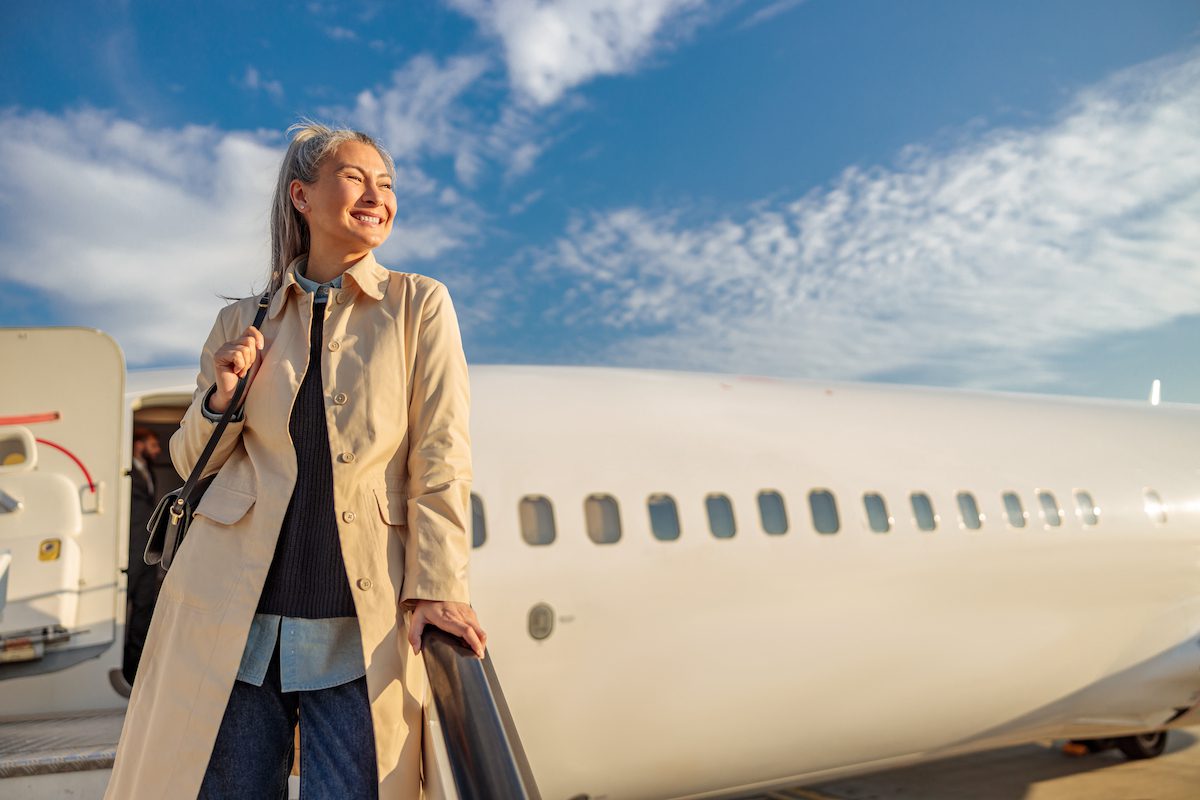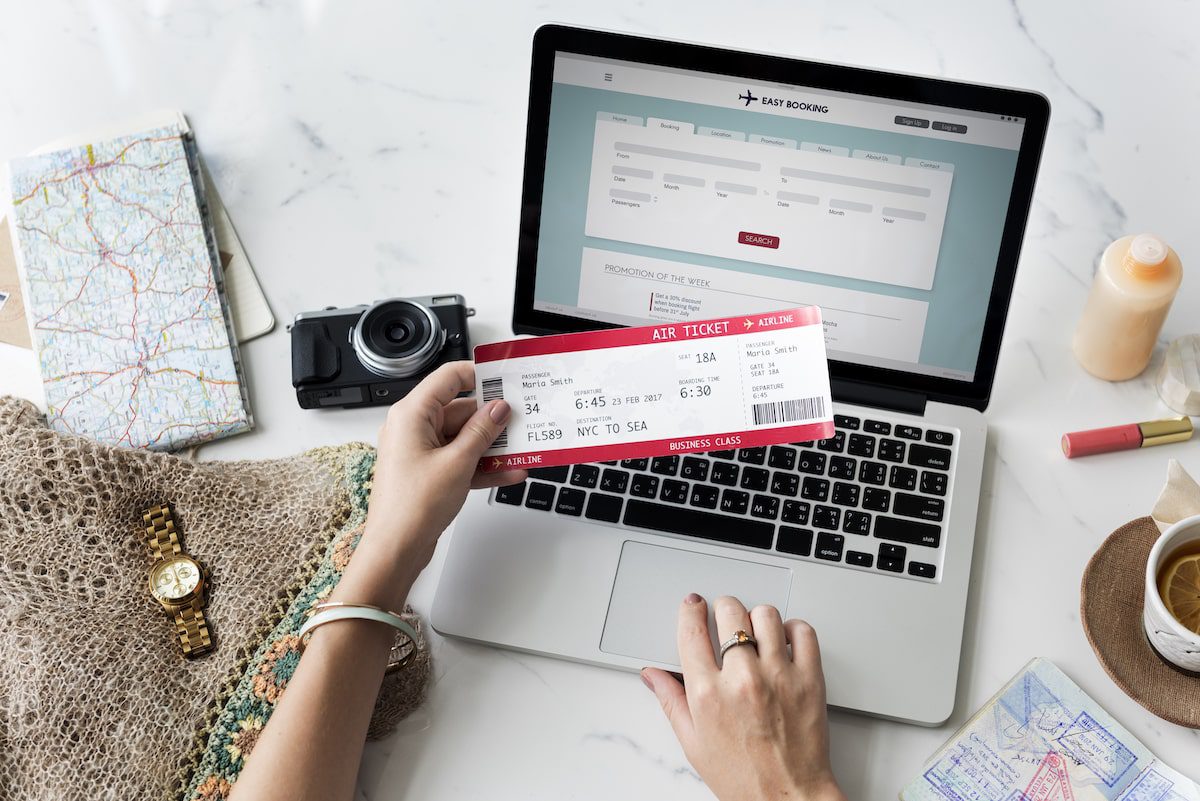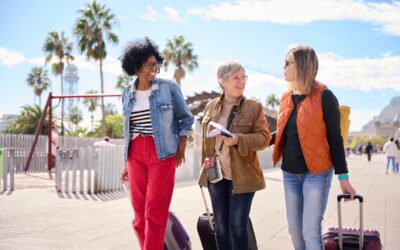Last updated on December 20th, 2024
Featured image: Save money on flights with these tips from Scott Laird | Photo by Rawpixel on Envato
Finding the best value on flights
by Carolyn Ray
One of the benefits of being a travel writer is that you get to meet other writers who all have their own area of expertise. This was the case when I met Scott Laird on a February 2024 press trip to Norway with Hurtigruten.
Arriving from an overnight flight from Toronto via Frankfurt, I was invited by Scott to join him in a lounge in the Oslo Airport. Over a cappuccino, he regaled me about his extensive travels, growing up in Alaska and Kaua’i, and time with Southwest Airlines. He’s logged a million-and-a-half miles onboard flights around the world and says his passion is ‘historic hotels, rare spa botanicals, gin cocktails, and plumeria trees’. He’s now Dallas-based and is a frequent contributor to several publications, including Condé Nast Traveler, TravelPulse, TravelAge West, and Fodors.
Recently, I expressed my frustration with the cost of flights and he was kind enough to indulge me with some of his best tips to save money, which I now share with you.

Scott in his happy place, Hawaii / Credit Scott Laird
1. What’s better, a third-party platform or an airline website when it comes to booking flights?
In the US, most airlines guarantee their domestic airfares will be the lowest on their website – I’ve never seen it lower on a third-party site for US domestic travel.
International travel is another ballgame, where airlines will sell bulk seats to consolidators who then resell the seats at their own price.
When I’m shopping, I like to comparison shop using Google Flights. I also set alerts for flights after I’ve bought them because sometimes the price will go down and I can rebook and get a credit for the difference in fare to use on a future flight. I’ll also set alerts for First Class – maybe the difference is too much when I book, but if there’s a sale on First Class after I book and the difference is more palatable to my budget, I’ll rebook into First Class on one or more of the flights.
2. What’s the deal with carry-on sizes changing? I’m hearing stories of a neck pillow being called a personal item.
My carry-on is quite small (it even fits overhead on the smaller Canadair and Embraer aircraft), but it never fails. When I travel with a carry-on, I wish I’d checked a bag (particularly if I take more than one pair of shoes), but when I check a bag, I seem to wait forever for it to come out at baggage claim and I begin to wonder if I really needed all that stuff. Even when I do check a bag, I take my small rollaboard carry-on so I have a platform for my smaller carry-on (which doesn’t have a shoulder strap).
Regulators in Europe and North America have taken notice of airlines’ practices for charging for carry-ons, and in the US there was even a lawsuit over one of the airlines’ carry-on sizers, so we may see some regulation here in the future.
3. Do private VPNs or incognito mode really work to get cheaper flights?
VPNs (Virtual Private Networks) and incognito mode can get you into trouble if the airline catches you – if they figure out you’ve circumvented their ticketing rules, they have a legal right to cancel your ticket or refuse boarding until you’ve paid the correct fare.
Airlines do still do a majority of big pricing changes on Tuesday afternoons, but those are for big changes like systemwide fare sales. Airlines have also automated inventory controls for individual flights, and what other passengers are buying also affects the fares they display, so there’s no good one-size rule for when fares are the lowest.
Just set an alert for the fare, watch it, and when it’s a price you’re satisfied to pay, buy it. Keep the alert active so you can get a credit if it goes down after you buy.


4. What’s your best tip to save money on flights overall?
I’m less about saving money and more about the best value. I tend to like premium cabins, so I don’t look for the cheapest fare, I look for the best value fare. I’ll pay a little more for an experience that includes checked and carry-on bags, lounge access, and extra legroom. I also like airlines with seatback entertainment – far less difficult than worrying about whether my device is charged and has content downloaded.
The yardstick I use is that a First Class or Business Class cabin is worth (to me) roughly $75 per hour of flight time. If the upgrade or fare difference is less, I’ll buy it – if it’s more, I’ll usually skip it. Of course, I’ve made exceptions if it’s something I’m really interested in (I spent a lot more than that on a recent last-minute upgrade to First Class on SWISS, and it was completely worth it, just for the memories alone).
5. Is it worth saving money to fly discount airlines?
Discount airlines can be great when everything is on time, but when they’re not, they quickly turn into a nightmare. Most of them won’t rebook on other airlines, and if the delay stretches out or they can’t rebook you onto one of their own flights, you might be waiting for days on end.
If I really need to get where I’m going, I avoid them in favour of network carriers (basically, any airline large enough to be part of a global airline alliance like Star Alliance or SkyTeam) because they’re usually more helpful during delays.
6. What’s your airplane etiquette pet peeve?
I’ve seen this bizarre increase in people not using headphones on airplanes or in airports. Some airlines, like Alaska and American, have specific policies about quiet cabins, and crews are pretty good about telling them they need to use headphones if their device is making noise.
Other airlines, remarkably, aren’t as clear-cut. Bottom line: if you’re not using headphones on your device and think it’s not loud enough to be bothersome to someone else, you’re just wrong. Use headphones, please.
You can find Scott on @AbFabSkyLife on Twitter/Instagram or sign up for his newsletter here.
More Money Saving Travel Tips
Five Ways to Save Money on Travel: Tips from the 2025 New York Travel and Adventure Show
Travel experts Pauline Frommer and Peter Greenberg share tips to save money on travel at the 2025 New York Travel and Adventure Show.
JourneyWoman Webinar: How to Save Money on Travel with Skyscanner
Join us on Tuesday, February 11 for a webinar with Skyscanner to bust open some myths about booking travel and ways to save money.
Home Exchanges and Housesitting: A Way For Seniors to Travel Responsibly and Save Money
Home exchanges and housesitting are a safe, affordable way for seniors to save money on travel while learning about local culture and traditions.







Your tips for saving money on flights are invaluable for budget travelers. The advice is clear and practical, making it easier to find affordable options. A must-read for savvy travelers!